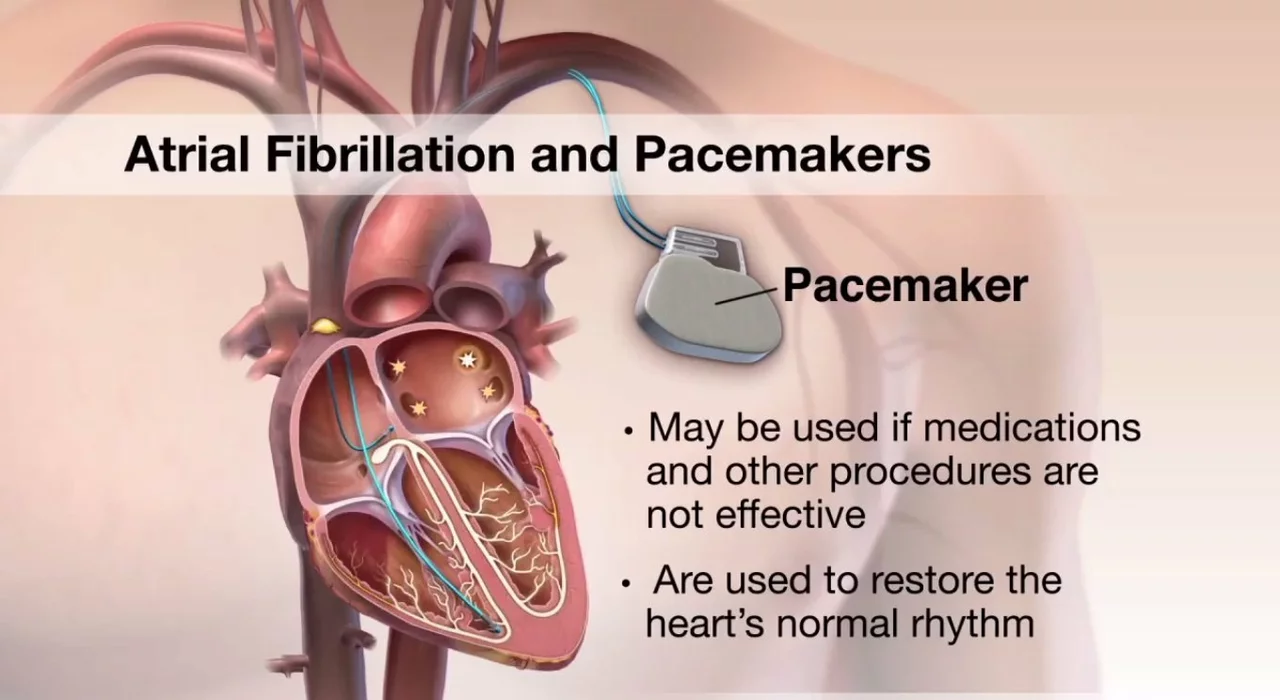Amiodarone and the Treatment of Atrial Flutter: A Comprehensive Guide
 May, 6 2023
May, 6 2023
Understanding Atrial Flutter and Its Complications
Atrial flutter is a type of abnormal heart rhythm, or arrhythmia, that affects the atria, the upper chambers of the heart. In this condition, the electrical impulses that control the heartbeat become irregular, causing the atria to contract rapidly and inefficiently.
This can lead to serious complications, such as stroke or heart failure, if left untreated. Therefore, it is crucial to understand the underlying causes of atrial flutter, its symptoms, and the potential impact on one's overall health.
Amiodarone: A Potent Medication for Atrial Flutter
Amiodarone is a powerful antiarrhythmic medication that has been shown to be effective in treating atrial flutter. It works by blocking certain electrical signals within the heart, thereby restoring a normal heart rhythm. In this article, we will delve into the specifics of amiodarone, including how it works, its side effects, and its potential benefits for those suffering from atrial flutter.
Amiodarone's Mechanism of Action
Amiodarone is a unique antiarrhythmic drug that works through several different mechanisms to stabilize the heart's electrical activity. It primarily blocks potassium channels, which are responsible for the repolarization phase of the cardiac action potential. This results in a prolonged refractory period, making it more difficult for arrhythmias to develop.
In addition to its potassium channel-blocking effects, amiodarone also blocks sodium and calcium channels, as well as alpha and beta-adrenergic receptors. This multifaceted approach helps to ensure that the heart maintains a regular rhythm, even in the presence of atrial flutter.
Dosing and Administration of Amiodarone
Amiodarone is typically administered through intravenous (IV) infusion or oral tablets, depending on the severity of the atrial flutter and the patient's overall condition. In emergency situations, IV amiodarone may be used to rapidly stabilize the heart rhythm. Oral amiodarone can be prescribed for long-term management of atrial flutter.
The dosage and duration of treatment will vary from patient to patient and should be determined by a healthcare professional. It is essential to closely follow the prescribed regimen to ensure the best possible outcome.
Monitoring and Adjusting Amiodarone Therapy
Due to the potent nature of amiodarone and its potential side effects, it is important to closely monitor patients receiving this medication. Regular blood tests and electrocardiograms (ECGs) can help track the drug's effectiveness and detect any potential complications.
In some cases, it may be necessary to adjust the dosage or even discontinue amiodarone therapy if side effects become too severe or if the drug is not effectively controlling the atrial flutter. Close communication with your healthcare provider is crucial in managing your treatment plan.
Recognizing and Managing Side Effects
While amiodarone can be an effective treatment for atrial flutter, it does come with the risk of side effects. Some of the most common side effects include nausea, vomiting, dizziness, and fatigue. More serious side effects can involve the lungs, liver, and thyroid, as well as causing vision problems and skin reactions.
It is essential to report any side effects to your healthcare provider as soon as possible, as they may need to adjust your treatment plan to minimize these issues.
Drug Interactions to Be Aware Of
Amiodarone has the potential to interact with a wide range of medications, potentially leading to serious complications. Some of the most common drug interactions include blood thinners, beta-blockers, calcium channel blockers, and other antiarrhythmic medications.
It is crucial to inform your healthcare provider of all medications you are currently taking, including over-the-counter drugs, vitamins, and herbal supplements, to prevent any potentially harmful drug interactions.
Alternatives to Amiodarone for Atrial Flutter
In some cases, amiodarone may not be the most suitable treatment option for atrial flutter. There are alternative antiarrhythmic medications available, such as sotalol, flecainide, and propafenone, which may be more appropriate for certain patients.
Additionally, non-pharmacological treatments, such as catheter ablation or the implantation of a pacemaker, may be considered in certain situations. Your healthcare provider will help determine the best treatment plan for your specific needs.
Lifestyle Changes to Complement Atrial Flutter Treatment
Alongside medical treatment, making certain lifestyle changes can help improve the management of atrial flutter. These may include maintaining a healthy diet, engaging in regular physical activity, managing stress levels, and avoiding alcohol and caffeine.
By adopting a healthier lifestyle, you can reduce your risk of complications related to atrial flutter and improve your overall well-being.
Understanding the Importance of Early Intervention and Treatment
Atrial flutter can be a serious and potentially life-threatening condition if left untreated. Early intervention with medications such as amiodarone can help restore a normal heart rhythm and prevent complications like stroke or heart failure.
By understanding the importance of early treatment and working closely with your healthcare provider, you can take control of your atrial flutter and maintain a healthy, active lifestyle.
Kirk Elifson
May 6, 2023 AT 17:14Nolan Kiser
May 6, 2023 AT 22:50Yaseen Muhammad
May 7, 2023 AT 14:31Dylan Kane
May 8, 2023 AT 03:35KC Liu
May 8, 2023 AT 07:27Shanice Alethia
May 8, 2023 AT 23:31Sam Tyler
May 9, 2023 AT 10:02shridhar shanbhag
May 9, 2023 AT 17:29John Dumproff
May 10, 2023 AT 05:48Lugene Blair
May 10, 2023 AT 09:53William Cuthbertson
May 11, 2023 AT 05:35Hudson Owen
May 11, 2023 AT 07:44Steven Shu
May 11, 2023 AT 16:40Milind Caspar
May 12, 2023 AT 09:00Rose Macaulay
May 13, 2023 AT 08:57Ellen Frida
May 14, 2023 AT 06:43Michael Harris
May 14, 2023 AT 10:48Anna S.
May 15, 2023 AT 04:46Prema Amrita
May 15, 2023 AT 05:46Robert Burruss
May 15, 2023 AT 18:03